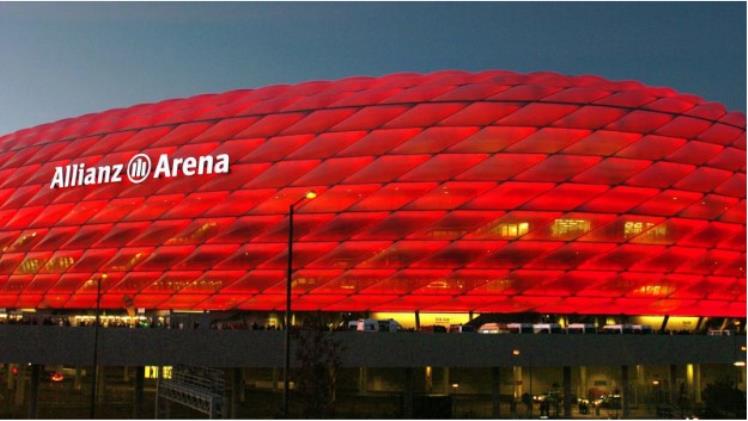Contents
History and Formation of the Stadium
According to football experts of Socolive TV https://www.bayaerial.com/ research Allianz Arena, one of the most famous stadiums in the world, is located in the city of Munich, Germany. Construction of the stadium began in 2002, and it officially opened on May 30, 2005. It’s one of the most remarkable sports architectural works of the 21st century, designed by architects Herzog & de Meuron in collaboration with top engineers.
The stadium was built to replace the Olympiastadion, which was previously Bayern Munich’s home. However, with the club’s desire for development and the need for a modern stadium, the Allianz Arena was born, becoming the new home of Bayern Munich from the 2005-2006 season.
With its unique architecture, the Allianz Arena was designed with a color-changing facade, covered by special plastic panels that allow the lighting to be altered during matches, creating a stunning spectacle at night. Since then, the stadium has quickly become a symbol of innovation and progress in modern stadium design.
Stadium Location and Capacity
The Allianz Arena is located in the Fröttmaning district, in the north of Munich, about 10 km from the city center. This location is not only easily accessible by public transport but is also close to major highways, making it convenient for fans traveling to matches.
The Allianz Arena has a capacity of up to 75,000 spectators for international matches and 70,000 for domestic games. It’s one of the largest stadiums in Germany and always maintains high-quality service, with modern amenities ranging from seating and dining areas to restrooms.
A special feature of the Allianz Arena is its unique lighting system, which can change the facade’s color for each event, creating incredibly impressive light effects at night. This is one of the factors that has made the stadium a standout sports venue in the world.
Historical Milestones at the Allianz Arena
The Allianz Arena is not just a venue for football matches; it has also witnessed many important sporting and cultural events. Here are some of the stadium’s memorable historical milestones.
Hosting Major Football Events
The Allianz Arena has become a venue for important matches, especially in international tournaments. One of the most memorable events here was being chosen as one of the stadiums to host the UEFA Euro 2020 finals. This was an extremely important event, not only for its scale but also for bringing together Europe’s top teams.
The stadium has also hosted many Champions League matches, a tournament where Bayern Munich has secured numerous victories and major titles. The Allianz Arena is not just a place where teams clash; it’s also an integral part of European football history.
Notable Achievements
Bayern Munich, a team deeply connected to the Allianz Arena, has achieved many great successes here. Over the past decade, the team has won countless titles, including multiple Bundesliga championships and international tournaments. The Allianz Arena is where the Bavarian team has won its most prestigious titles, including the Champions League in 2010 and 2020. These victories not only elevated the team’s reputation but also cemented the Allianz Arena as an indispensable icon in world football history.
In addition to football tournaments, the Allianz Arena also hosts other sporting events like women’s football, international friendlies, and even large-scale concerts by international artists.
See more: https://www.bayaerial.com/bang-xep-hang-bong-da/
Conclusion
The Allianz Arena is not just an ordinary football stadium. With its modern design, impressive capacity, and convenient location, it has become an indispensable symbol of the city of Munich and of world football. The historical milestones from top-tier matches, major sporting events, and Bayern Munich’s glorious victories have made the stadium a significant part of fans’ hearts.
